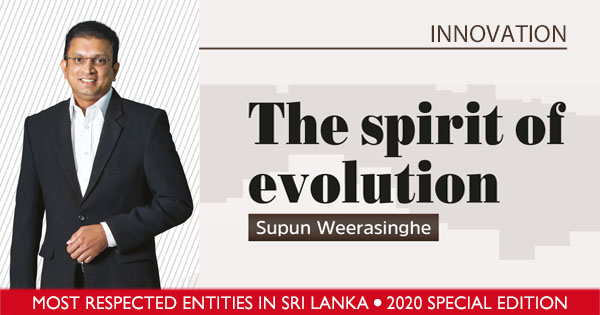“In the wake of COVID-19, corporate vision will play an increasingly important role in distinguishing a company’s direction,” says Thimal Perera who counts years of exposure to both the local and international banking sector – and thus knows the ins and outs of corporate vision.
“In an increasingly competitive business environment, corporate vision can define how well a company rises above its competitors and industry,” Perera declares.
He adds: “In the same manner that Tesla is driving the world’s transition to electric vehicles by attempting to create the most compelling car of the 21st century, so too can companies capitalise on vision to redefine the markets and industries in which they operate.”
Commenting on which elements he believes are crucial for corporate vision, Perera points to the importance of both a mission and a vision statement.
“A well-defined mission statement will dictate how your business interacts with its environment in the present, which will complement a vision statement with realistic foresight,” he assures while also imploring businesses to stay relevant in the context of their industry or sector.
He goes on to suggest that if companies want to tie purpose to the end product or service that’s available to the consumer, a central vision that aligns employees to the objectives and problems the company is looking to address will facilitate this.
“Take Google, for example,” Perera notes, adding: “Its purpose is to ensure that the entirety of the world’s information is available at a single click – this is reflected in its products and services, and has charted much of its actions in the past years.”
And he warns against the factors in Sri Lanka that lead to myopic corporate vision. Perera identifies complacency at the corporate level supplemented by ineffective decisions by leaders who are unwilling to expose themselves to the competitive flows of the global market as having significant repercussions for Sri Lanka in the long run.
“Companies cannot survive on the back foot eternally, and justify the pursuit of achieving milestones in the short term and at the domestic level. Sri Lanka must anchor its vision for the long run; doing so will enable us to position our goods and services to shifts in consumer
behaviour, the business environment and economy before changes emerge,” Perera maintains.
He continues: “As with the pandemic and its impact on local industry, it pays to be conscious of and be prepared for change.” And Perera says that several steps can be taken to foster better vision at the national level.
“School curriculums can have better defined subjects to introduce students to the corporate world and leadership. If young people are aware of opportunities the world offers, they will be more inclined to craft solutions to meet these needs and thereby implement their own vision when they enter the corporate world,” he explains.
He adds that “their knowledge should be tethered not only to local developments but global ones as well. This will create a body of graduates who are capable of looking outward and making informed decisions to cater to larger markets.”
However, Perera points to the cornerstone of vision: versatility. He elaborates: “It suffices to say that all of this planning will be for nothing if corporates cannot adopt a more versatile approach to their vision.”
He sums up by emphasising that “a good leader doesn’t follow a single plan but understands that there are myriad outcomes and possibilities; therefore, it is crucial that vision encompasses versatility. Failure to do so may in turn cripple businesses.”






